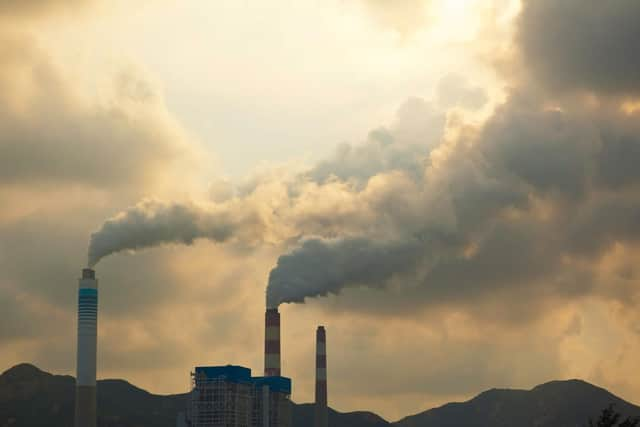Air pollution: Why is air quality bad today and how does Scotland's air quality compare to the rest of the UK?


Air pollution is deemed to be the biggest environmental threat to human health in the UK.
As populations increase, more resources are needed to support growing numbers of people.
Advertisement
Hide AdAdvertisement
Hide AdScotland has some of the best air quality in the UK, but there are still areas for concern.


Here’s a look at what’s causing air pollution in Scotland, and where some of the most and least affected areas are.
What is air pollution?
According to the World Health Organisation, air pollution refers to the contamination of air due to the presence of substances in the atmosphere that are harmful to the health of humans and other living creatures.
Air pollution is generally caused by emissions of pollutants from sources like factories, domestic heating, and transport.
Why is air quality bad today?
Although air quality in Scotland today is at its best than at any other time since the Industrial Revolution, pollution levels can still fluctuate.
For example, a high air pollution warning was announced in London on March 24th 2022, with mayor Sadiq Khan urging people to stay inside where possible, especially if they have existing respiratory conditions like asthma.
Weather conditions can also affect air pollution, with cold weather making pollutants more visible in the air and warm rising air often lifting pollutants off the ground and away from city streets.
Humidity and heavy clouds can also decrease ozone pollution by blocking light from the sun and moisture destroying layers of pollution that have already formed.
Where is the cleanest air in Scotland?
Advertisement
Hide AdAdvertisement
Hide AdBased on data from Scotland Air Quality, a Scottish government-funded research organisation, and the Department for Environment, Food, and Rurul Affairs – UK Air, the Environmental Protection Agency (EPA) in the United States has ranked Scottish cities according to their AQI scores.
These scores run from zero to 500, with the higher numbers indicating a higher level of air pollution and therefore a greater health concern.
Anything below 50 indicates a good level of air quality, between 51 and 100 is moderate, 101 to 150 is unhealthy for sensitive groups, 151 to 200 is unhealthy, 201 to 300 is very unhealthy, and 301 and higher is deemed hazardous.
In Scotland, just two towns are deemed to have ‘good’ air quality: Renfrew, with a score of eight, and Dunfermline, with a score of 41.
The worst area of Scotland is Greenock, with a score of 122, meaning it is unhealthy for sensitive groups and therefore “members of sensitive groups may experience health effects” and “the general public is less likely to be affected”.
Edinburgh has a score of 82, meaning it has ‘moderate’ air quality, meaning that “air quality is acceptable. However, there may be a risk for some people, particularly those who are unusually sensitive to air pollution”.
Despite having decent air quality overall, the capital city was recently ranked second worst among major European cities for air pollution improvements.
Similarly, Glasgow has a score of 97, meaning that while the air quality is worse than Edinburgh, the AQI classification and health warning remains the same.
How does Scotland's air quality compare to the rest of the UK?
Advertisement
Hide AdAdvertisement
Hide AdOn average, Scotland’s air quality is better than England and other UK nations.
Nonetheless, in 2018, Health Protection Scotland estimated that approximately 1,700 premature deaths in Scotland annually can be attributed to air pollution.
There are also a number of specific areas that breach the Scottish, UK, and EU’s annual average target limit concentration for nitrogen dioxide.
These are:
- Glasgow’s Hope Street
- Edinburgh’s Nicolson Street
- Dundee’s Seagate
- Inverness’ Academy Street
- Dundee’s Lochee Road in Dundee
- Edinburgh’s St John’s Road
Comments
Want to join the conversation? Please or to comment on this article.

